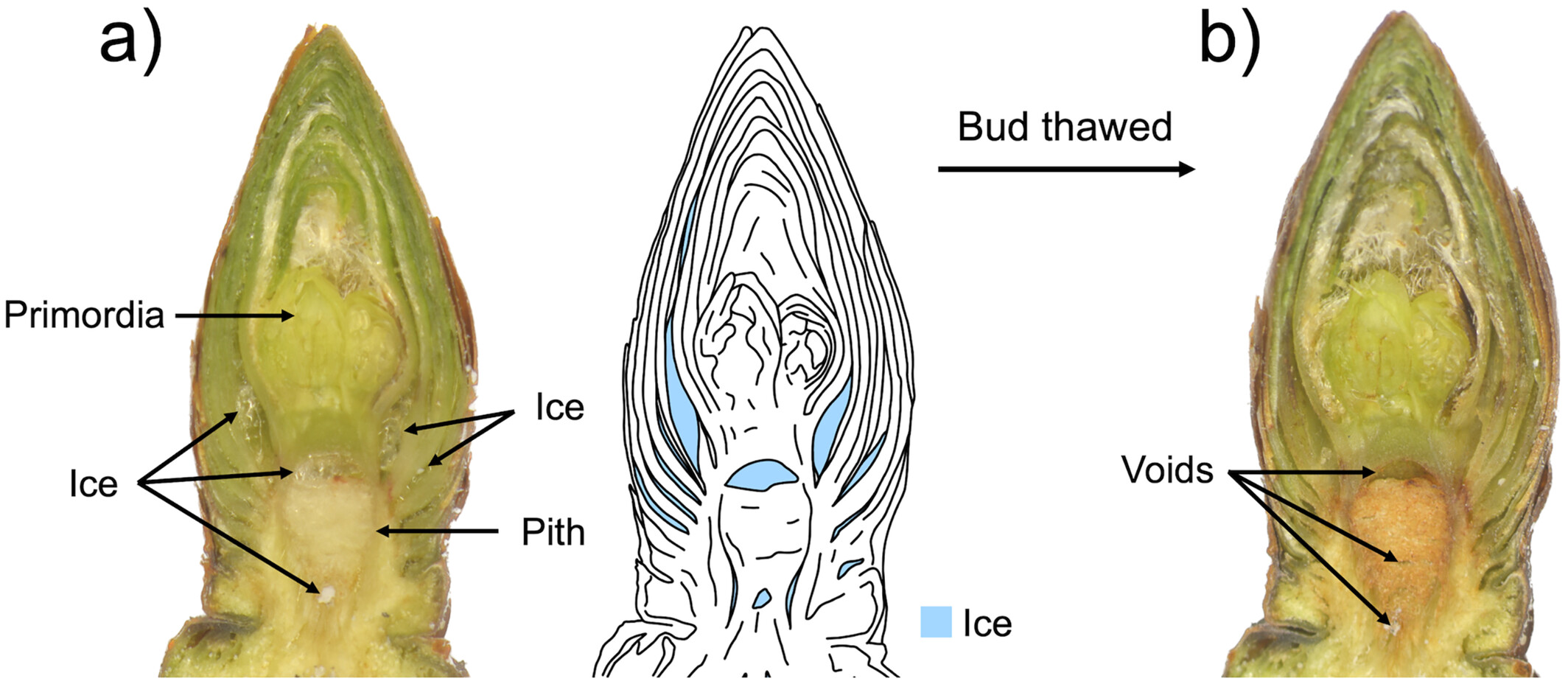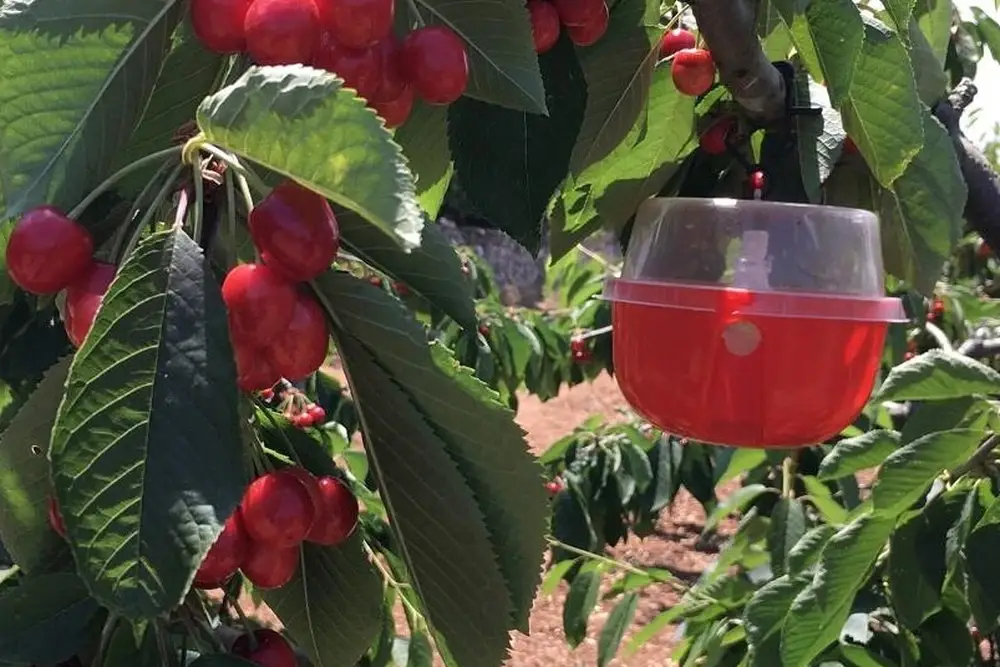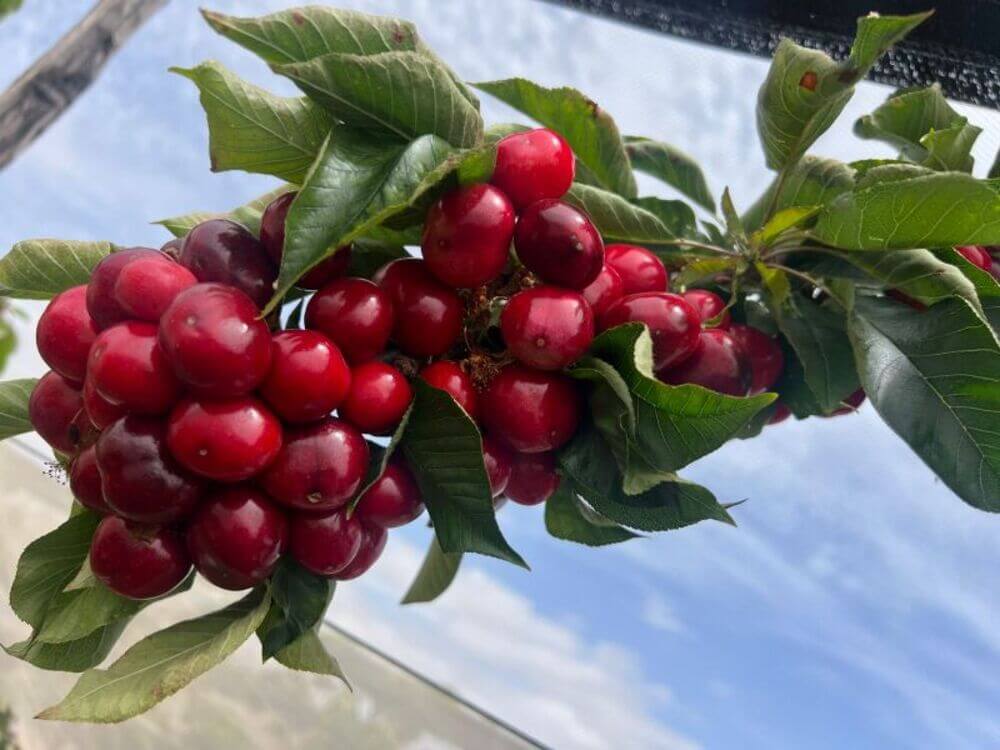The survival mechanisms of plants at low temperatures are still being studied, particularly the process of "supercooling" in plant tissues. This mechanism allows cells to maintain water in a liquid state even below freezing, preventing ice formation that could damage the tissues. A Canadian study has examined the properties of sweet cherry flower buds to understand how they manage to supercool and survive through the winter.
Experiments were conducted on sweet cherry flower buds using differential thermal analysis (DTA), a technique that monitors the release of heat due to ice melting. Researchers observed the formation of ice within the bud structure, identifying barriers that prevent its spread to sensitive tissues, such as the flower primordia.
The results showed that ice tends to form between the outer scales and along the bud axis, protecting the primordia from freezing. However, the ability to supercool does not depend on the presence of the scales, which can be removed without compromising the process.
Vascular differentiation (i.e. the development of xylem vessels) in the flower primordia, observed primarily in spring, appears to compromise the buds' supercooling ability. In winter, a barrier located beneath the primordia prevents ice propagation, but as growth resumes in spring, the differentiation of the xylem creates a conduit that facilitates the spread of ice, reducing the effectiveness of supercooling.
 Image 1: Ice accommodation in overwintering sweet cherry flower buds exposed to in-field sub-zero temperatures. Photographs taken under a dissecting microscope on 24 February 2023 of a sweet cherry flower bud that was: (a) held at in-field freezing temperatures after experiencing a natural cold snap along with a digital diagram of the same flower bud to highlight regions of ice accommodation, then (b) thawed to room temperature. Source: E. Houghton.
Image 1: Ice accommodation in overwintering sweet cherry flower buds exposed to in-field sub-zero temperatures. Photographs taken under a dissecting microscope on 24 February 2023 of a sweet cherry flower bud that was: (a) held at in-field freezing temperatures after experiencing a natural cold snap along with a digital diagram of the same flower bud to highlight regions of ice accommodation, then (b) thawed to room temperature. Source: E. Houghton.
The study also highlighted that the structure of sweet cherry buds is more complex than that of other species in the Prunus genus, such as peach, with a greater number of primordia and scales. Nevertheless, the findings confirm that the supercooling mechanism observed in cherries is similar to that of other Prunus species, like peach and apricot. Ice forms in regions external to the primordia, such as the scales and the bud axis, and this freezing process seems to be a survival strategy at low temperatures.
Finally, it was observed that if the area directly beneath the primordia is damaged, the supercooling mechanism is compromised. This suggests that this region plays a crucial role in maintaining the ability to supercool, as it affects the distribution of water and ice formation in the surrounding tissues.
In summary, this study provides new and detailed insights into the supercooling mechanisms of sweet cherry flower buds, confirming the importance of this system in protecting the flower primordia from frost. This property becomes less efficient with vascular differentiation in the spring. The results of this research contribute to a better understanding of plant survival strategies at low temperatures, with potential applications for improving frost-sensitive species.
Source: Houghton, E., Watanabe, Y., Neilsen, D., Nelson, L. M., & Hannam, K. Investigating properties of sweet cherry (Prunus avium) flower buds that help promote freezing avoidance by supercooling. Plant Biology. https://doi.org/10.1111/plb.13697.
Image: New England Tree Fruit
Andrea Giovannini
University of Bologna (IT)
Cherry Times - All rights reserved











